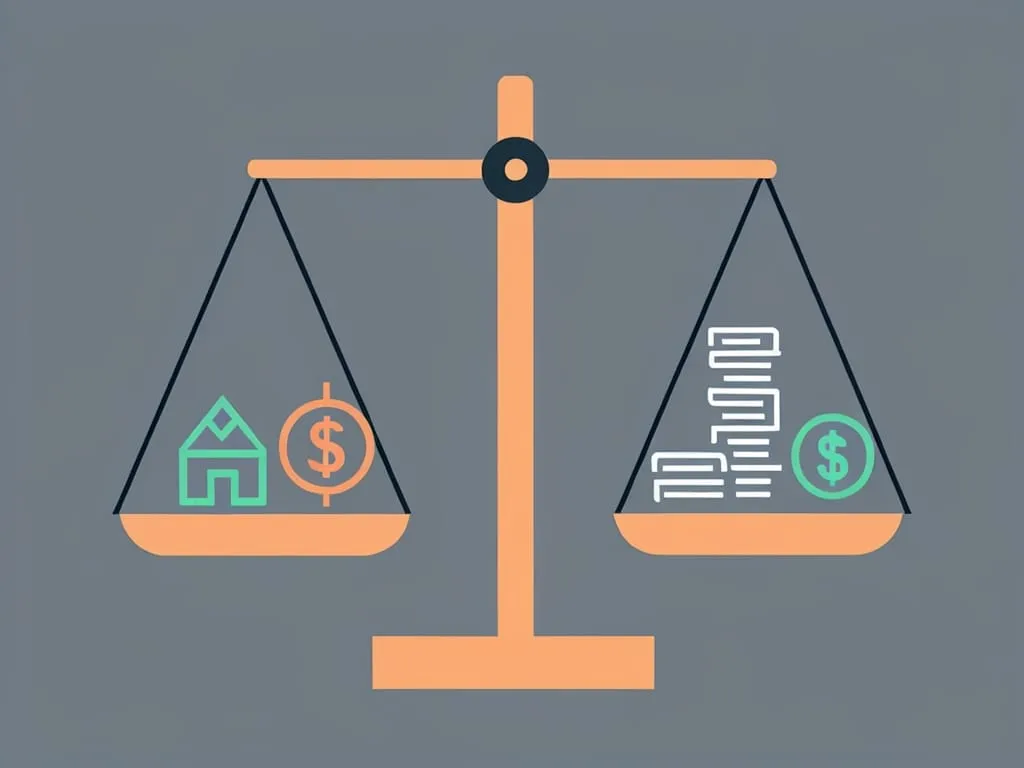When it comes to managing money, many of us are taught that success is all about the numbers – how much you earn, how much you save, and how well you invest. However, the truth is far more complex. Our financial decisions are often driven by emotions, personal experiences, and unique worldviews, rather than just mathematical formulas.
The Power of Behavior Over Intelligence
Doing well with money isn't necessarily about how smart you are or how much you know about finance. It's about how you behave. This is a crucial lesson that many of us overlook. Smart people can make poor financial decisions, not because they lack knowledge, but because their behavior is influenced by factors like personal history, ego, and pride.
For instance, consider the story of a gas station attendant who became a millionaire through diligent saving and smart investing. Despite his modest income, he managed to accumulate a fortune by living below his means and investing wisely. On the other hand, a highly educated executive who spent lavishly on a luxurious lifestyle ended up filing for bankruptcy. These examples illustrate that financial success is more about behavior than income.
The Role of Luck Versus Skill
Luck plays a significant role in financial success, often more so than we acknowledge. While skill and knowledge are important, being in the right place at the right time can make a huge difference. However, this doesn't mean that you should rely solely on luck. Instead, it's about understanding that luck is a factor and making decisions that maximize your chances of success regardless of the circumstances.
For example, someone who starts saving early in life may benefit from compound interest over decades, even if they don't earn a high income. This long-term approach can turn small, consistent savings into a substantial fortune, regardless of the ups and downs of the market.
Long-Term Thinking
One of the most critical insights from behavioral finance is the importance of long-term thinking. In a world where instant gratification is often the norm, it's easy to get caught up in short-term gains and immediate pleasures. However, true financial success comes from making decisions that align with your long-term goals.
Imagine starting to save just $1 per day from the age of 18. By the time you reach 65, with an average annual return of 11%, you would have accumulated over $400,000. This simple habit, maintained over decades, can lead to a significant nest egg that provides financial security and freedom.
Lifestyle Creep and the Moving Goalpost
As we earn more, it's common to fall into the trap of "lifestyle creep," where our spending increases in tandem with our income. This means we're always living at the edge of our financial means, never really saving or investing as much as we could. To avoid this, it's essential to set a financial goalpost that doesn't move with your income.
Think of it like this: if you're used to living on a certain amount, try to maintain that lifestyle even as your income increases. This allows you to save more and invest for the future, rather than constantly upgrading your lifestyle. It's about finding contentment in what you have and not letting your desires inflate with your income.
The Impact of Personal Experiences
Our personal experiences and backgrounds significantly influence how we handle money. For instance, someone who grew up during a recession might be more frugal and cautious with their finances, while someone who grew up in a period of economic prosperity might be more optimistic and willing to take risks.
Understanding these differences is key to making better financial decisions. It's not about judging others for their money habits but recognizing that everyone's financial behavior is shaped by their unique experiences. This empathy can help you make more informed choices that align with your own financial goals and values.
Frugality and Humility
True wealth is often hidden from view. While some people flaunt their wealth through luxury cars and big houses, others prefer to keep their savings and investments private. The latter approach is often more sustainable and leads to greater financial security.
Frugality and humility are essential components of building wealth. It's not about depriving yourself of things you enjoy but about making conscious choices that prioritize long-term financial health over short-term pleasures. As one wise saying goes, "If you buy too many things with your money, all you have is too many things and no money."
The Barbell Approach to Investing
When it comes to investing, a balanced approach can be incredibly effective. This is often referred to as the "barbell personality," where you are both optimistic about the future and paranoid about potential risks. This means taking calculated risks by investing in the market while also keeping a significant portion of your savings in cash or other safe assets.
For example, having 20% of your savings in cash and 80% invested can provide a good balance between growth and security. This approach ensures that you're not fully dependent on the market's performance and can weather any economic storms that may come your way.
Avoiding Extremes
Financial success is not about extremes; it's about finding a balance that works for you. Avoiding the extremes of either being too conservative or too aggressive can help you maintain a stable financial trajectory.
For instance, someone who invests 100% of their savings in the market might see significant gains but also faces the risk of substantial losses. On the other hand, someone who keeps all their savings in cash might avoid risk but also misses out on potential growth. Finding a middle ground that aligns with your risk tolerance and financial goals is crucial.
Time and Compounding Interest
Time is perhaps the most powerful ally in building wealth. The earlier you start saving and investing, the more time your money has to grow. Compound interest can turn small, consistent savings into a substantial fortune over decades.
Consider a parent who starts saving $1 per day for their child from birth. By the time the child reaches 18, and then continues this habit themselves, the total savings at age 65 can be staggering. This illustrates the immense power of starting early and letting time work in your favor.
Personal Relationship with Money
How we feel about money is deeply personal and influences our financial decisions significantly. Do you see money as a tool to achieve happiness and freedom, or do you view it as an end in itself? These questions are fundamental in shaping your financial habits.
For some, money is about securing a stable future, while for others, it's about buying tangible things that bring immediate joy. Understanding your relationship with money can help you make better financial choices that align with your values and goals.
True Wealth and Freedom
The highest form of wealth is not about accumulating assets but about having the freedom to do what you want, when you want, with whom you want, for as long as you want. This freedom is what true wealth provides – the ability to live life on your own terms.
In conclusion, managing money effectively is not just about numbers and strategies; it's about understanding and managing your own behavior, emotions, and personal experiences. By adopting a long-term perspective, avoiding lifestyle creep, and finding a balanced approach to investing, you can build a healthier relationship with money and achieve true financial freedom.
Remember, it's the small, consistent habits and the right mindset that can lead to significant financial success over time. So, take a step back, reflect on your financial behaviors, and make the necessary adjustments to align your actions with your long-term goals. The journey to financial wellness is a personal one, and understanding the psychology behind your money decisions is the first step towards a more secure and fulfilling financial future.






